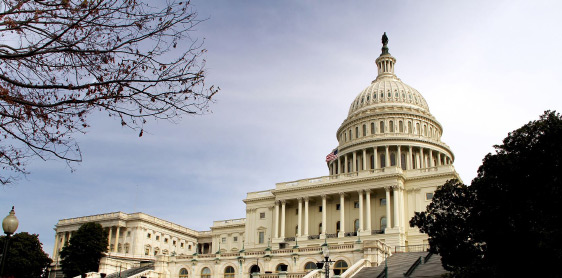The Lighthouse® is the weekly email newsletter of the Independent Institute.
Subscribe now, or browse Back Issues.
Volume 20, Issue 34: August 21, 2018
- Opposition to Telemedicine Harms Budgets and Patients
- Plastic Bans: More Harm than Help
- Revamped Violence Against Women Act Faces Uphill Battle
- Stadium Fever Makes Taxpayers Delusional
- The Beacon: New Blog Posts

As noted last month in The Lighthouse, government regulation is choking telemedicine. It’s not the only reason that telemedical technology is grossly underutilized, however. As Independent Institute Senior Fellow John C. Goodman explains in a column at Forbes, many doctors and insurers still resist taking full advantage of telemedicine. One reason may be fear of competition: medical sensors, zoom cameras, and computer algorithms can detect things that may otherwise go unnoticed by the human eye. But this doesn’t mean healthcare providers should be concerned that technological innovation will eliminate their jobs.
Although telemedicine can sometimes outperform traditional medicine, doctors and nurses should see it (along with artificial intelligence) not as a substitute for their labor, but as a complement that helps them do their jobs better. “Telemedicine provides a way to monitor and digest data streams, looking for signs of trouble,” Goodman writes. It may be especially helpful in serving people who live far from a healthcare provider. Hospitals using video cameras are already better at monitoring certain rural patients for blood pressure, respiration, patient sounds, and other health indicators. In fact, saving patients the time and hassle of traveling to see a provider may be telemedicine’s greatest benefit of all.
Unfortunately, Blue Cross and most employer plans don’t cover telemedicine—which is odd considering its cost savings. And although Medicare now covers telemedicine for rural patients, “it won’t pay for the same services in urban settings,” Goodman writes. “That means that the hip replacement patient, recuperating at home, must get out of bed, travel to the hospital, wend his way to an examination room and then reverse that whole process—at least if he expects Medicare to foot the bill.”
Lower Cost, Higher Quality Health Care Is Right at Our Fingertips, by John C. Goodman (Forbes, 7/23/18)
A Better Choice: Healthcare Solutions for America, by John C. Goodman

In Santa Barbara, Calif., restaurant workers caught serving a banned plastic straw after their first offense can get six months in jail. That penalty may be hard to top, but cities anxious about their environmental impact may be willing to try. Next July, San Francisco will outdo Seattle’s recent prohibition on plastic straws in bars and restaurants by banning the straws completely. Such efforts, however, are fundamentally misguided, according to Independent Institute Senior Fellow William F. Shughart and Policy Fellow Brian Isom.
“The substitutes for plastic cost substantially more without being significantly better for the environment,” Shughart and Isom write in an op-ed running in the Sacramento Bee and elsewhere. Paper straws are far more expensive than plastic straws (as much as 22 percent costlier). Moreover, paper substitutes often leave a significantly greater environmental footprint than the plastic versions they’re meant to replace (in the case of shopping bags, up to 43 times more impactful, according to the Danish environmental agency).
Governments can do better than enacting costly mandates of dubious benefit. “If lawmakers want to promote meaningful change,” Shughart and Isom write, “they should focus on creating incentives and good institutions for managing plastic waste and leave it to private businesses to change the way Americans consume plastic.” Above all, they should avoid “unduly burdening smaller businesses and the people who work for them,” the authors conclude.
Replacements for Plastic Straws Have Their Own Problems, by William F. Shughart II and Brian Isom (The Sacramento Bee, 8/8/18; Star Tribune, 8/8/18; and others)
Plastic Pollution: Bans vs. Recycling Solutions, by Katie Colton, Camille Harmer, Brian Isom, and William F. Shughart II

Next month, the House of Representatives will decide whether or not to reauthorize the Violence Against Women Act (VAWA). Expect the debate to become a major political flashpoint in the weeks ahead. If reauthorization doesn’t pass, this fact will become another point of contention in the November elections, according to Independent Institute Research Fellow Wendy McElroy in an op-ed in The Hill.
Introduced by Rep. Sheila Jackson Lee (D-TX), the reauthorization bill, HR 6545, would, among other changes, expand the law’s definition of domestic violence to cover not only felony and misdemeanor violence, but also “verbal, emotional, economic, or technological abuse or any other coercive behavior committed, enabled, or solicited to gain or maintain power and control over a victim.” If that sounds like a major expansion, that’s because it is. The proposed legislation continues: “Technological abuse may include — unwanted, repeated telephone calls, text messages, instant messages, or social media posts.”
This expansive definition isn’t the only indicator that reauthorization faces an uphill battle. “For the first time, VAWA was introduced in the House, rather than in the Senate; this could mean that the bill’s champions in the Senate, Sen. Grassley and Sen. Feinstein, were not confident of having sufficient or immediate support,” McElroy writes. While passage by the House is still a possibility (a spokesperson for Speaker Paul Ryan even says it’s likely), success in that chamber of Congress in no way ensures final passage. “If it does move to the Senate, the fate of VAWA’s reauthorization is murkier,” McElroy writes.
Violence Against Women Act Reauthorization: Even if the Democrats Lose, They Win?, by Wendy McElroy (The Hill, 8/10/18)
The Abby Honold Act: Reinventing Justice?, by Wendy McElroy (The Daily Caller, 7/5/18)
Audio: Wendy McElroy on Violence Against Women (The Dr. Laura Schlessinger Radio Show, 2/6/14)

Attention, Sports Fans: That new stadium your city is talking about is likely costing you far more than you realize. In an op-ed at Forbes, Independent Institute Research Fellow Art Carden discusses the latest evidence: a study published last month in Economic Inquiry by two academic economists who studied hotel occupancy data from Charlotte, North Carolina, to determine the financial impact of various political and sporting events.
“Back‐of‐the‐envelope calculations show incremental hotel‐tax receipts fall short of the debt service incurred in constructing and maintaining the city's sports venues,” write the economists, Craig A. Depken of the University of North Carolina at Charlotte and E. Frank Stephenson of Berry College.
One extra cost that the public often ignores regarding public stadiums is extra policing, whether for a sports game or a political convention. Plus, the public often falls prey to the propaganda of developers and other special interests. “When construction starts on a new stadium or convention center, local leaders congratulate themselves like they’ve won some kind of great economic victory,” Carden writes. “They haven’t. They’ve simply fleeced the taxpayers for the benefit of construction companies, team owners, and other special interests by saddling them with white elephants for which they’ll pay for decades.”
Will a New Stadium Make Your City Richer?, by Art Carden (Forbes, 7/18/18)
Time to Stop Taxpayer Funding for Sports Stadiums, by Craig Eyermann (The Beacon, 8/6/18)
Book review: They Play, You Pay: Why Taxpayers Build Ballparks, Stadiums, and Arenas for Billionaire Owners and Millionaire Players, by James T. Bennett. Reviewed by Raymond D. Sauer (The Independent Review, Winter 2014)
- The Truth about Turkey, by Alvaro Vargas Llosa
- National Employee Freedom Week, by Vicki Alger
- WaterFix Tunnels Deeper Hole for Taxpayers, by K. Lloyd Billingsley
- Federal Bureaucrats Behaving Badly, by Craig Eyermann
- ¿Cuomo Esta?, by K. Lloyd Billingsley
- How Is President Trump’s Regulatory Rollback Coming Along?, by Craig Eyermann
- Government-Pushed Ethanol Harms People, Environment, by Craig Eyermann
- Spy Case Confirms No Limit to Federal No-Fire Zone, by K. Lloyd Billingsley






